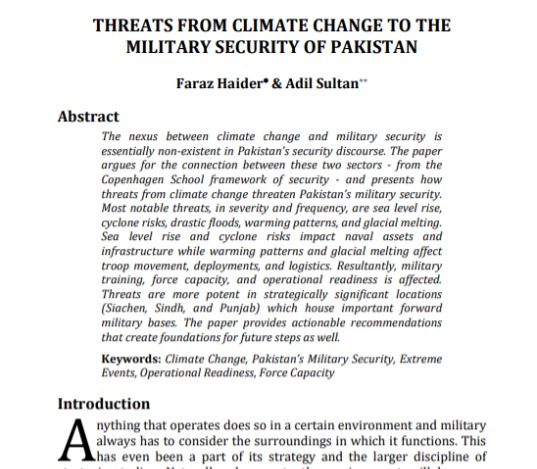THREATS FROM CLIMATE CHANGE TO THE MILITARY SECURITY OF PAKISTAN
DOI:
https://doi.org/10.54690/jcs.v11i1.211Keywords:
Climate Change, [alistan's Military Security, Extreme Events, Operational Readiness, Force CapacityAbstract
The nexus between climate change and military security is essentially non-existent in Pakistan’s security discourse. The paper argues for the connection between these two sectors - from the Copenhagen School framework of security - and presents how threats from climate change threaten Pakistan’s military security. Most notable threats, in severity and frequency, are sea level rise, cyclone risks, drastic floods, warming patterns, and glacial melting. Sea level rise and cyclone risks impact naval assets and infrastructure while warming patterns and glacial melting affect troop movement, deployments, and logistics. Resultantly, military training, force capacity, and operational readiness is affected. Threats are more potent in strategically significant locations (Siachen, Sindh, and Punjab) which house important forward military bases. The paper provides actionable recommendations that create foundations for future steps as well.

Downloads
Published
How to Cite
Issue
Section
License
Copyright (c) 2022 NDU

This work is licensed under a Creative Commons Attribution-NonCommercial 4.0 International License.
License Terms








